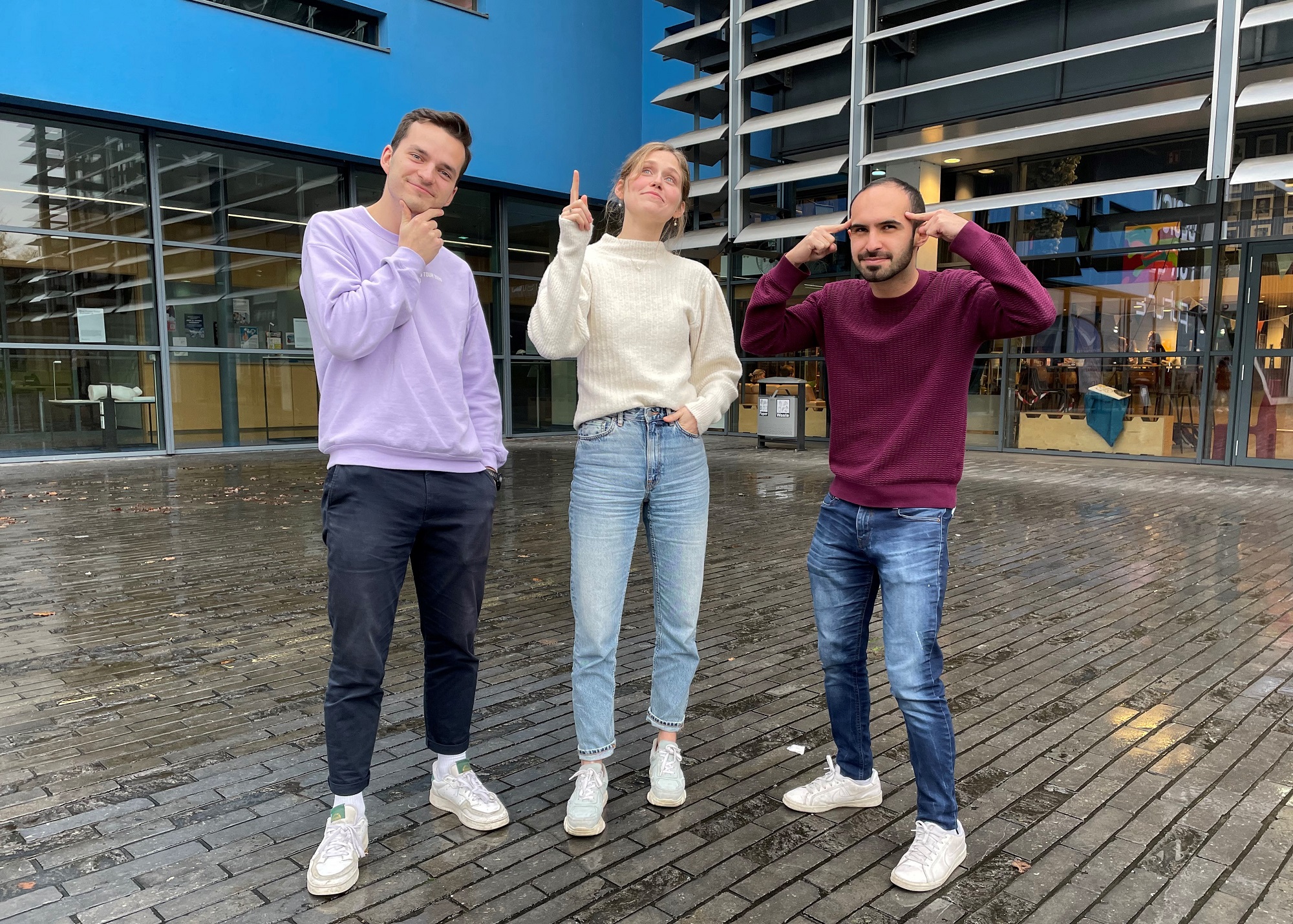Want to boost your brain while you sleep? Camilo Carvajal Ortega and two fellow students are developing a product with that aim.
Pictured from left to right are ConsolidAID partners Jann Meinzer, Daphne Stukker and Camilo Carvajal Ortega. (Photo: Jann Meinzer)
“I am studying Strategic Product Design (SPD) at the Faculty of Industrial Design. I’m taking an elective that is called Build Your Startup. It’s a course where you basically shape an idea that you really want to take to market. I’m working with Daphne Stukker and Jann Meinzer, who are also studying SPD. We decided to do something that could help improve performance. During our research we found that what people need the most for performance is sleep.
So, we started doing a lot of research and came across this really interesting technique called Targeted Memory Reactivation. It’s a way to select which memories you want to store more than others simply using the capability that your brain already has. There is no product on the market that uses this technique so we feel that we are truly innovating.
The question was then, who could actually use this? From the research we found that people who are sleep deprived tend to have a big loss of memory, loss of the ability to focus and decrease in creative problem solving. The great thing is that we can actually have a tremendous effect on all of these aspects. So, how it works is when you’re dealing with information that is important to you, you smell a scent. Your brain attaches this scent to the information that you are receiving at that moment. Then you replicate that same scent when you are sleeping, which is when our brain works more efficiently. That triggers your brain to process that information again. You basically tell your brain that you really need to remember something and according to the research you can increase your brain capability by around 30% to 40%.
‘We are looking for people who are eager to try this’
Together we started ConsolidAID and our challenge is to take this research into the real world. Right now, we are doing our second pilot test and we have 10 people supporting us by participating on the pilot. We have attended a couple of pitch events and people are very interested so far. We’re still in development, but what we have right now is a wristband so you can have it with you the whole day. It has a scent in it so whenever you are in a situation you want to remember you smell it, you have to be conscious about it. Then at night we have a scent releaser that you place next to you. It lasts just long enough to make sure that during the first couple of sleep cycles you receive this scent. Those are the main cycles when these processes happen. It doesn’t disturb your sleep, but it’s making use of something that your brain is already doing.
We’re hoping to have our first functional prototype at the end of January and then we would like to do longer tests, maybe one or two months. Then we expect maybe later next year we can start commercialising and go to market. Those are the plans, but let’s see how it actually happens. For the next round of testing, we are looking for people who are eager to try this. Specifically, we are looking for young parents who have a child but they are also working, people who are in general sleep-deprived, and people who are older than 55 years old and are still working. The idea is if you can’t sleep as much, how can you make sure that the sleep you get really counts.
Something really nice about this faculty is the focus on entrepreneurship. When you are doing a project for yourself and you’re doing something that really moves you, something that is going to become real, it makes you work harder. It’s exciting to work on something like this.”
Want to be featured in Humans of TU Delft? Or do you know someone with a good story to tell? Send us an e-mail at humansoftudelft@gmail.com
Heather Montague / Freelance writer



Comments are closed.